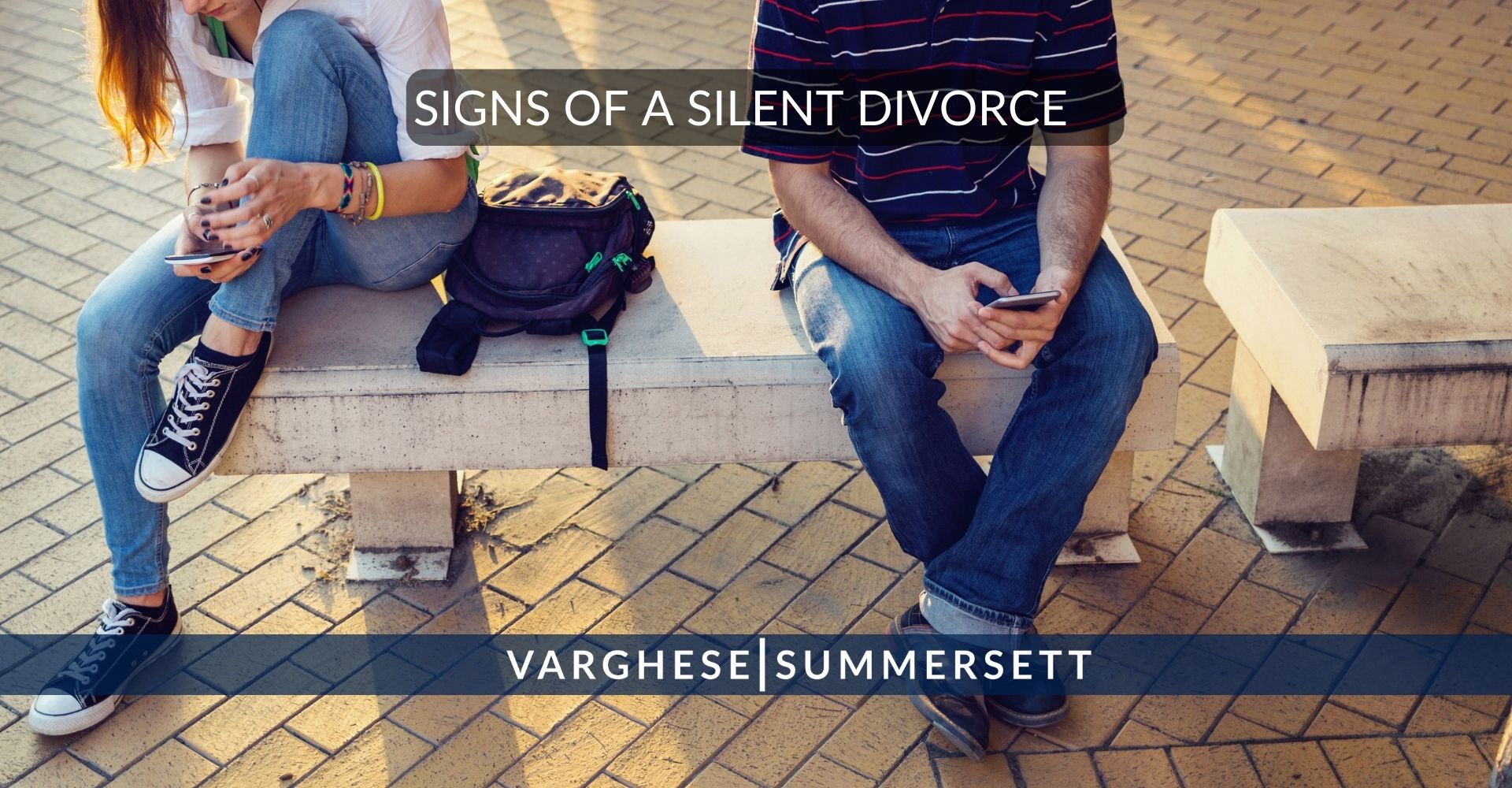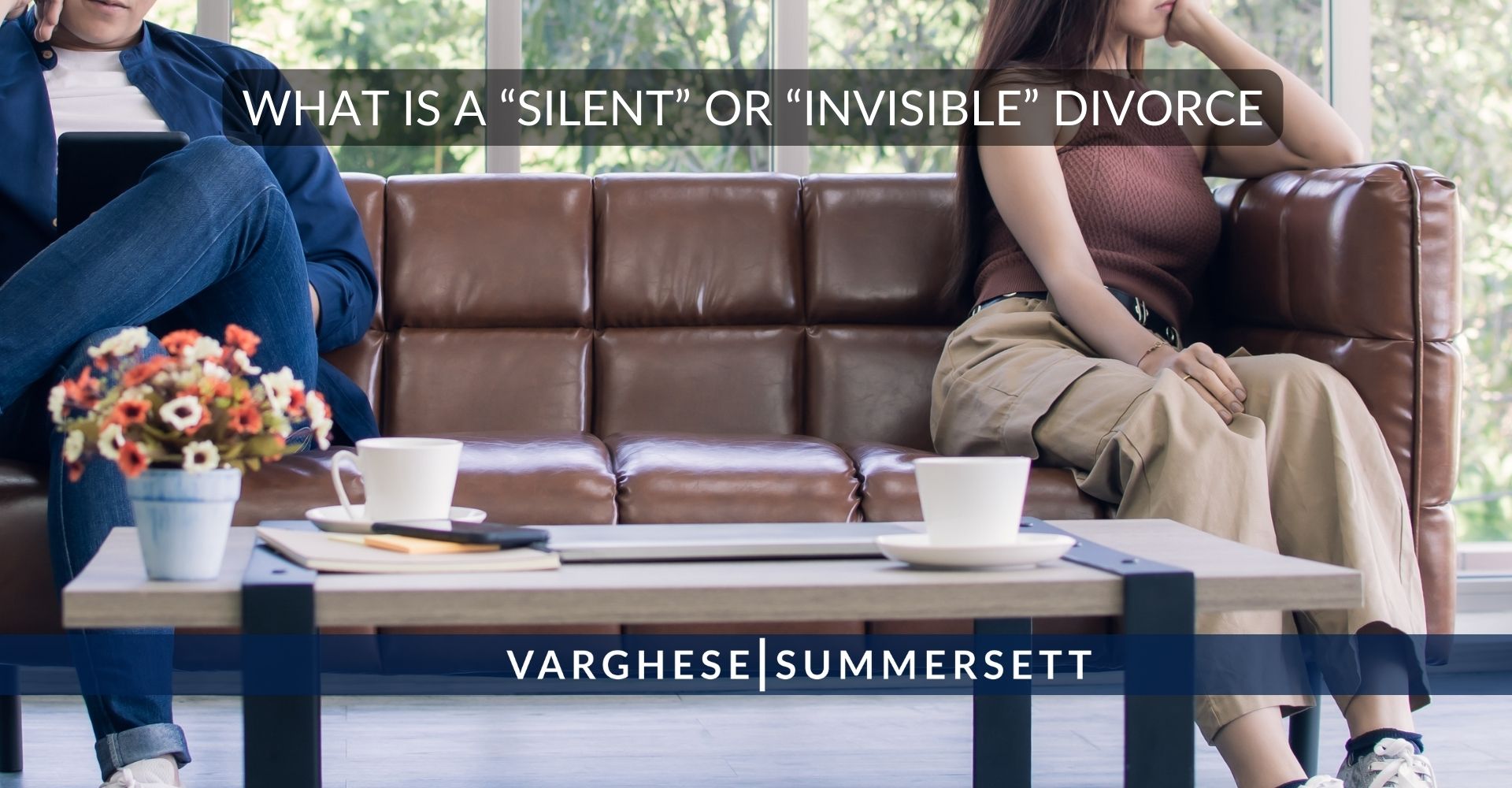Silent Divorce - When Love Fades But Life Goes On
Sometimes, a couple might be living side by side, sharing a home, perhaps even raising children, yet a quiet separation has already happened between them. This is what some call a “silent divorce.” It is, you know, a situation where the emotional connection, the true bond that once held two people close, has just, well, faded away. People in this kind of arrangement are still together on paper, for all the world to see, but the heart of their partnership, that really important part, has simply stopped beating. They stay put for many different reasons, like maybe money matters or the comfort of an established routine, rather than any real feeling of togetherness.
These partnerships, in a way, exist in a sort of quiet limbo. There is no big announcement, no court papers, just a gradual drifting apart that goes unnoticed by most. You see, the outside world might still view them as a solid pair, going about their days, but behind closed doors, a deep chasm has formed. This kind of separation, actually, can be more painful in some respects than a formal split, because the pretense of a happy home has to be kept up, day in and day out, for everyone around them.
The reasons people find themselves in this quiet, almost invisible separation are quite varied. It could be for the sake of the children, or perhaps financial security plays a big role, or even just the fear of facing a completely new chapter alone. Whatever the cause, this quiet arrangement often carries a significant weight, a burden that each person carries alone, pretty much. We will look at what this experience feels like and how it affects those involved, and perhaps, too it's almost, what might be done about it.
- How Long Was The Movie Wicked
- Human Touch Rick Springfield
- Plane Crash Honolulu Airport
- Katie Holmes Pregnancy
- Kim Kardashian Crying Face
Table of Contents
- What is a Silent Divorce?
- The Quiet Signs of a Silent Divorce
- Why Do People Stay in a Silent Divorce?
- The Personal Cost of a Silent Divorce
- Is There a Way to Mend a Silent Divorce?
- The Ripple Effect of a Silent Divorce
- Finding Your Voice in a Silent Divorce
- Can a Silent Divorce Be Prevented?
What is a Silent Divorce?
A silent divorce, as a concept, describes a marriage where the emotional ties have pretty much dissolved, but the couple remains legally wed and lives together. It is not about yelling or big fights; rather, it is about the absence of things. There is often a lack of shared interests, a missing sense of deep connection, and a noticeable quietness where lively conversation or heartfelt exchanges once were. It is a partnership where the partners act more like housemates than loving companions, you know. They might go through the motions of daily life, sharing meals or attending events, but the spark, the warmth, the genuine care for each other's inner world, is simply not there anymore.
Think about it like this: when Andre Agassi and Steffi Graf joined together, they did so "for better or worse," as the saying goes. That kind of commitment is a big deal, a promise of a future shared. Yet, over time, for many couples, the "worse" part can creep in quietly, not as a sudden storm, but as a slow, almost imperceptible erosion of the "better." The outward appearance remains intact, which is that, a couple still seems to be a unit, but the inner workings, the emotional machinery, have stopped functioning as a team. This internal separation is what truly defines a silent divorce, a sort of private, unspoken agreement to live separate emotional lives while physically cohabiting.
This situation can be very subtle, so much so that even close friends or family might not pick up on it. There are no dramatic scenes, no public displays of unhappiness. Instead, there is a quiet politeness, a distant respect, or simply a routine that has taken over where affection used to be. It is a marriage that has, in a way, gone into hibernation, but without any real hope of waking up. The individuals might feel quite isolated, even when they are right next to their partner, which is, you know, a very lonely feeling to carry.
- Free And Jay Z
- Uranus In Aquarius Woman
- My Super Sweet 16 Season 9
- Yvette Prieto Hijas
- Steven Yeun Acceptance Speech
The Quiet Signs of a Silent Divorce
Recognizing a silent divorce can be tricky because its nature is, well, silent. The indicators are often subtle, not loud. One common sign is a lack of communication that goes beyond just everyday chats. Couples in a silent divorce might talk about schedules, bills, or the children, but they rarely discuss their feelings, their dreams, or their worries. There is a noticeable absence of personal sharing, a shutting down of the deeper conversations that keep a relationship alive. You might find that one person, or both, just stop asking about the other's day in a meaningful way, for instance.
Another sign is a growing independence in daily life. Partners might start making decisions separately, planning their free time without consulting the other, or finding happiness outside the home more often than within it. It is as if they have built individual lives within the shared space, creating separate routines and interests. This can seem harmless at first, but it can, you know, slowly chip away at any remaining sense of shared purpose. The shared activities, the little traditions that once bound them, might just fade away, replaced by individual pursuits. This quiet pulling apart is a hallmark of a silent divorce.
Consider the idea of hidden damage, like the "silent caravan killer" of leaks in J mould that cost people a lot of money. A silent divorce can be like that, too. The problems are not obvious; they are hidden, slowly causing damage that can be quite expensive in terms of emotional well-being. There is often a lack of physical closeness, not just in terms of intimacy, but also simple touches, hugs, or even sitting close on the couch. The warmth of physical presence diminishes, replaced by a sort of polite distance. This quiet detachment, honestly, speaks volumes about the emotional state of the partnership.
Why Do People Stay in a Silent Divorce?
There are many reasons why people might choose to remain in a silent divorce, even when the emotional connection has gone. Money is a big one, of course. Splitting assets, managing two households, or dealing with the financial fallout of a formal separation can seem like a huge mountain to climb. The perceived security of staying together, even if it is just a financial one, can be a powerful motivator. For some, the cost of leaving just feels too high, you know, in a practical sense.
Children are another very common reason. Parents often believe that staying together, even unhappily, is better for their kids than breaking up the family. They might worry about the emotional impact on their children, the disruption to their lives, or how a separation might affect their schooling or friendships. The desire to provide a stable home environment, even if it is an emotionally distant one, can lead couples to endure a silent divorce for many years. This commitment to the family unit, in a way, overrides their personal happiness.
Social image and the opinions of others can also play a part. Some people feel a pressure to maintain the appearance of a happy, intact family, especially if they are part of a close-knit community or have a public profile. The idea of announcing a separation, like when Clémence's split from Malik became public, can feel overwhelming. The support she received from her friends on "Mariés au premier regard" shows that public announcements bring public reactions, and some people prefer to avoid that kind of scrutiny or judgment. It is, you know, easier to keep things quiet, even if it means personal sacrifice.
The Personal Cost of a Silent Divorce
Living in a silent divorce can take a significant toll on a person's well-being. The constant pretense, the lack of genuine connection, and the emotional void can lead to feelings of loneliness, sadness, and even depression. It is like living a half-life, where a part of you, the part that yearns for love and intimacy, is left unfulfilled. This can manifest as a general sense of unease, a lack of joy in daily activities, or a feeling of being stuck in a situation with no clear way out. The emotional burden is, really, quite heavy.
Over time, this emotional detachment can also affect physical health. Stress, anxiety, and the suppression of feelings can lead to sleep problems, a weakened immune system, or other physical complaints. The energy required to maintain the illusion of a happy marriage can be draining, leaving little left for personal growth or genuine happiness. It is a slow burn, a quiet erosion of one's spirit, which can be very, very damaging. This kind of ongoing stress can chip away at a person's resilience, too it's almost, making it harder to cope with other life challenges.
There is also the loss of personal identity that can happen. When a relationship is defined by what it lacks rather than what it has, individuals might start to lose sight of who they are outside of that quiet, unfulfilling partnership. They might stop pursuing their own interests or expressing their true selves, becoming, in a way, just a shadow of who they could be. This slow fading of one's unique qualities is a sad outcome of a silent divorce, leaving people feeling quite diminished.
Is There a Way to Mend a Silent Divorce?
For some couples, recognizing they are in a silent divorce can be the first step towards change. It is not always about ending the marriage; sometimes, it is about trying to rebuild what has been lost. This often starts with an honest conversation, a very difficult one, about the state of their relationship. This means both people need to be willing to acknowledge the emotional distance and express a desire to work on it. It requires a lot of courage to face the truth, you know, and to speak it out loud.
Professional help, like seeing a therapist or counselor, can provide a safe space for these conversations to happen. A neutral third party can help couples learn to communicate again, to express their needs and feelings without judgment, and to rediscover the emotional connection that might still be buried underneath layers of routine and silence. It is about learning new ways to interact, to listen, and to truly hear each other, which is, in some respects, a skill that can be relearned. The goal is to move from a place of quiet resignation to one of active engagement, or at least a clearer path forward.
Sometimes, even if the marriage cannot be fully mended to its former state, this process can help couples find a new way to relate, one that is more honest and less emotionally draining. It might lead to a conscious uncoupling that is respectful and kind, rather than a continuation of the silent pain. The important thing is to address the silence, to bring what is hidden into the light, so that both people can move towards a more authentic way of living, whether together or apart. This honest look at things can be, you know, very freeing.
The Ripple Effect of a Silent Divorce
A silent divorce does not just affect the two people in the marriage. It can have a ripple effect, reaching out to touch children, family members, and even close friends. Children, for instance, are often very sensitive to the emotional atmosphere in their home, even if parents believe they are hiding their true feelings well. They might pick up on the tension, the lack of warmth, or the emotional distance, which can cause confusion, anxiety, or a sense of insecurity for them. This quiet unhappiness can, you know, shape their own views on relationships later in life.
Family and friends might also feel the impact, though they may not understand why. They might notice a shift in dynamics, a certain stiffness or lack of spontaneity when the couple is together. The reluctance to share big moments, like Lauryn Shannon's hesitation before sharing her experiences, can be a sign of this kind of emotional guardedness. A silent divorce means that the couple is not fully present, emotionally, even in social settings, which can create a subtle distance with others, too it's almost. This quiet withdrawal can affect the broader social circle, creating a sense of unease without anyone quite knowing why.
The owner of Jacques Dutronc's home in Corsica changed, which is a quiet shift in an external circumstance. Similarly, the internal ownership of a relationship's emotional space can change, affecting everyone connected. This quiet transformation can mean that support systems that might have been available for a couple, or for individuals within the couple, become less accessible because the true nature of the situation is not known. The hidden nature of a silent divorce can make it harder for others to offer the right kind of help or comfort, which is, you know, a very isolating thing for everyone involved.
Finding Your Voice in a Silent Divorce
Breaking the silence in a silent divorce is a powerful step. It means acknowledging the reality of the situation, first to oneself, and then, perhaps, to the partner. This act of speaking up, even if it is just a quiet admission to a trusted friend or a personal journal, can be incredibly freeing. It is about reclaiming one's own emotional truth, rather than continuing to live a lie, which is, you know, a very important part of healing. This personal honesty is the first crack in the wall of silence.
The Reddit co-founder spoke about wanting his daughter to understand that having a certain quality is a "superpower." In a similar way, finding your voice in a silent divorce can be a superpower. It is the ability to recognize your own needs, to value your own happiness, and to act on that self-awareness. This does not always mean leaving the marriage; it means choosing to live authentically, whatever that looks like for you. It is about taking back control of your emotional life, rather than letting it be dictated by the quiet pain of an unfulfilled partnership.
This process of finding your voice can involve seeking personal therapy, joining a support group, or simply leaning on trusted confidantes who can offer a listening ear without judgment. It is about building a network of support that can help you navigate the emotional landscape of a silent divorce, whether you choose to try and repair the relationship or move towards a new chapter. The goal is to move from a place of quiet suffering to one of active participation in your own well-being, which is, you know, a very healthy step to take.
Can a Silent Divorce Be Prevented?
Preventing a silent divorce often comes down to consistent, honest communication from the very beginning of a relationship, and throughout its life. It means making a habit of checking in with each other, not just about daily tasks, but about feelings, hopes, and any concerns that might be bubbling under the surface. This kind of open dialogue can help address small issues before they grow into large, unspoken chasms. It is about actively tending to the emotional garden of the relationship, rather than letting it become overgrown with weeds of silence, you know.
Paying attention to the little shifts in a relationship can also help prevent a silent divorce. If one person starts pulling away, or if shared activities begin to dwindle, it is an opportunity to ask questions and to engage. It means being proactive about maintaining the connection, rather than just assuming it will always be there. This requires a certain level of emotional awareness
- Gabby Windley
- Caitlin Clark Leaving For European League
- Joann Kern
- Oj Simpson Bruno Magli Shoes Photo
- Battle Of The Exes 2

Silent Divorce Dynamics: Together But Apart

Silent Divorce Dynamics: Together But Apart

Silent Divorce Dynamics: Together But Apart